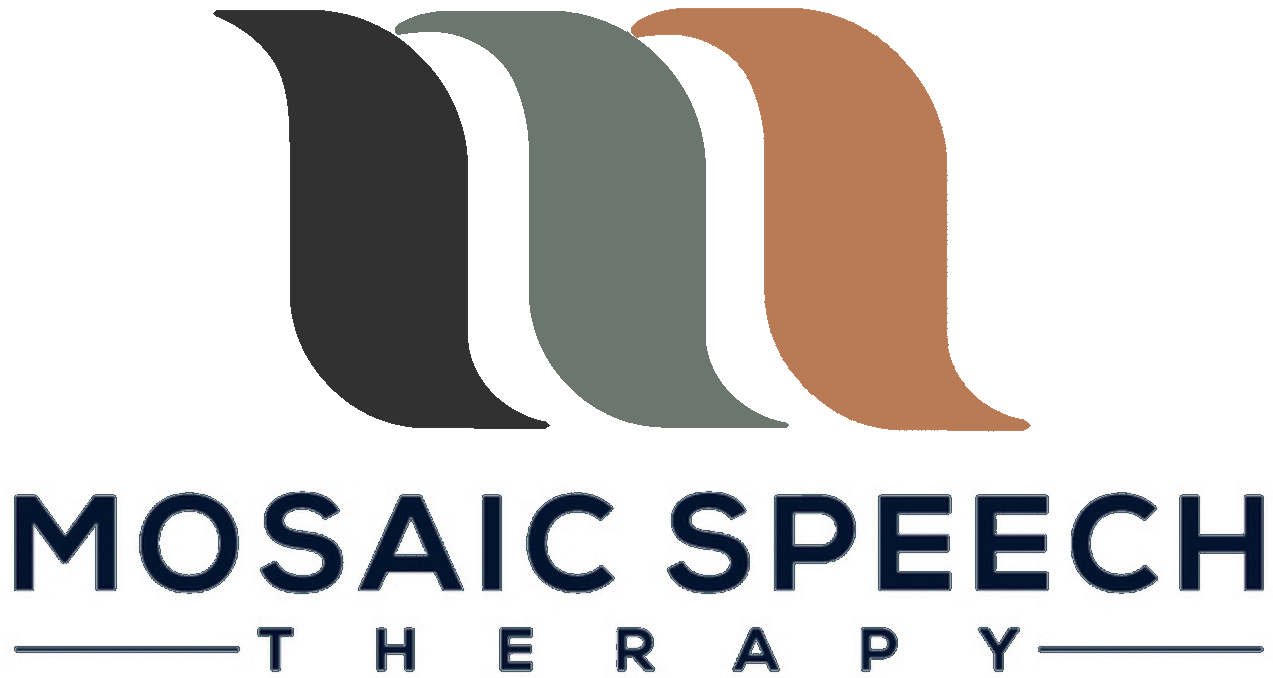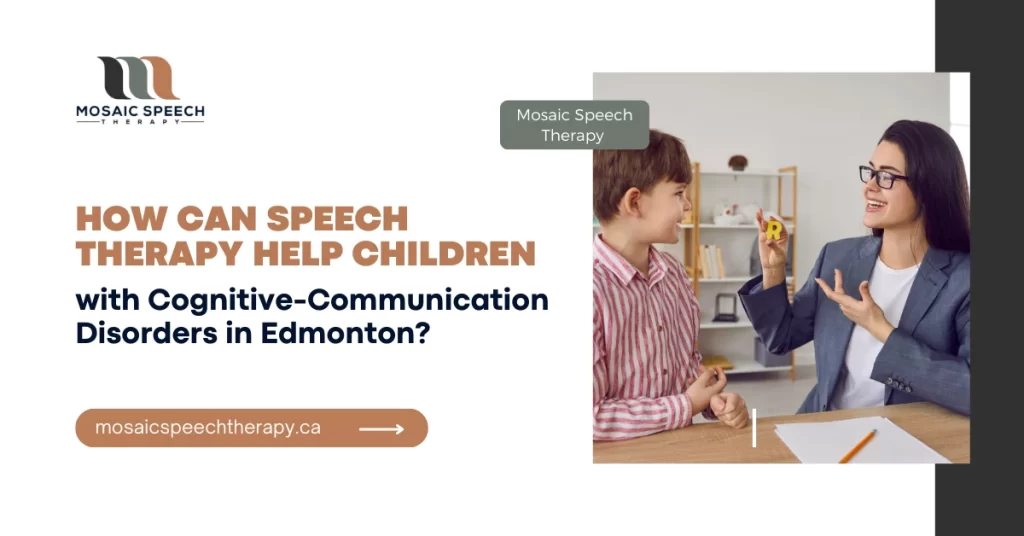When a child experiences difficulties with communication, it can significantly impact their ability to learn, socialize, and navigate the world around them.
Cognitive-communication disorders are a specific type of communication difficulty that can affect children of all ages.
This comprehensive guide explores cognitive-communication disorders in children, including causes, symptoms, diagnosis, and treatment options available at Mosaic Speech Therapy in Edmonton.
What are Cognitive-Communication Disorders in Children?
Cognitive-communication disorders encompass a range of difficulties that hinder a child’s ability to process, understand, and communicate information effectively.
These challenges can manifest in various ways, impacting a child’s language skills (e.g., trouble expressing themselves verbally, understanding spoken language, or using language for different purposes).
Social communication can also be affected, leading to difficulties with social interaction, turn-taking in conversations, understanding nonverbal cues, or using appropriate language in social settings.
Cognitive-communication disorders can also affect thinking skills like memory, attention span, problem-solving abilities, and the ability to follow instructions.
Causes of Cognitive-Communication Disorders in Children
Cognitive-communication disorders can stem from various factors, including:
- Brain injuries: Accidents, injuries, or medical conditions that impact the brain can affect communication skills.
- Developmental delays: Some children may experience delays in reaching developmental milestones related to communication.
- Neurological conditions: Certain neurological conditions, such as Autism Spectrum Disorder (ASD), can affect communication development.
- Genetic factors: In some cases, there may be a genetic predisposition to cognitive-communication disorders.
Signs and Symptoms of Cognitive-Communication Disorders in Children

The signs and symptoms of cognitive-communication disorders can vary depending on the child’s age and the severity of the condition. However, some common indicators include:
- Speech and language delays: A child may not meet expected milestones for spoken language development, such as babbling, using single words, or forming sentences at appropriate ages.
- Difficulties understanding language: The child may struggle to follow instructions, comprehend questions, or have trouble processing information presented verbally.
- Challenges with social communication: They may exhibit difficulty taking turns in conversations, understanding nonverbal cues (facial expressions, body language), or using appropriate language in social settings.
- Problems with memory and attention: The child may have difficulty remembering things, focusing on tasks, or easily get distracted.
- Learning difficulties: Children with cognitive-communication disorders may experience challenges in school due to communication barriers.
Early intervention is crucial for children with cognitive-communication disorders. If you notice any of these signs in your child, it’s vital to seek a professional evaluation from a qualified speech-language pathologist (SLP) like the ones at Mosaic Speech Therapy in Edmonton.
Treatment for Cognitive-Communication Disorders in Children at Mosaic Speech Therapy

At Mosaic Speech Therapy in Edmonton, our team of experienced and certified SLPs provides comprehensive treatment programs for children with cognitive-communication disorders. Our therapy approaches are designed to address each child’s unique needs and may include:
Language intervention: This focuses on improving a child’s vocabulary, grammar, sentence structure, and overall communication skills.
Social communication intervention: We help children develop the skills they need to interact effectively in social settings, including turn-taking, using appropriate language, and understanding nonverbal cues.
Cognitive rehabilitation: Therapies may target improving memory, attention span, problem-solving abilities, and following instructions.
Mosaic Speech Therapy is committed to helping children with cognitive-communication disorders reach their full potential.
Our compassionate and experienced SLPs will work closely with you and your child. For personalized assistance, feel free to contact us at info@mosaic-slp.ca or 587-292-0072.

